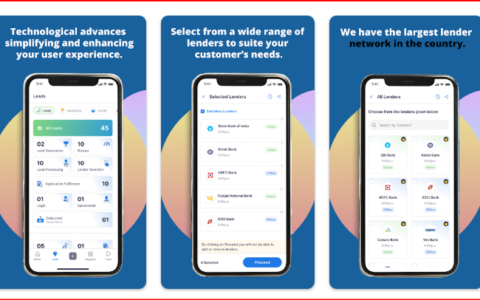
The year 2024 is poised to be a promising one for entrepreneurs who are strategic, adaptive, and leverage the right opportunities. Despite fears of a possible economic downturn, there are several trends today that enable entrepreneurs to build scalable, stable businesses.the following are the stategies which tells about that, How Entrepreneurs Can Thrive in 2024 ?
Adopt Digital-First Business Models
As consumer behavior continues shifting online, entrepreneurs need to transition to digital or hybrid business models that blend physical and virtual offerings. Building an intuitive online presence, user-friendly websites/apps, and integrated payment systems provide convenient customer experiences – vital for any modern business. Automation tools can streamline order fulfillment and customer support as entrepreneurs scale their e-commerce. Business expenses are also lowered by decreasing brick-and-mortar overheads. Homepreneurs can run lean startup teams with remote work models. Even traditional businesses like retail stores, clinics, and tuition centers need robust digital assets alongside physical infrastructure.
The pandemic fast-tracked digital adoption – global e-commerce is slated to hit $5.4 trillion in 2024. Savvy entrepreneurs are riding this wave early on. They test digital MVPs, foster online communities, run targeted social media marketing, and forge partnerships with influencers and bloggers to grow reach. Integrating digital is indispensable for startups aiming for explosive growth within a short time.
Leverage Niche Opportunities in Rising Sectors
While mainstream sectors face turbulence from mega-corporations, emerging niche spaces often lack big players. Entrepreneurs venturing early into rising sectors can establish market dominance before rivals catch on. For example, space tech, EVs, agritech drones, health informatics, e-gaming, and the creator economy lacked mature incumbents until recent years when visionary startups filled this gap.
Entrepreneurs must scan industry horizons and identify rising niches aligned with their expertise. While tapping into fast-growing sectors, they can also address pressing societal needs – climate action, healthcare access, financial inclusion, skill development, etc. Purpose-driven businesses resonate with conscious consumers and talent. Startups shouldn’t attempt to boil the ocean from day one – beginning niche allows testing concepts before expanding. By strategically choosing their beachhead sector, entrepreneurs can spur rapid incubation.
Build Globally Scalable Models with Tech
Technology adoption enables startups to achieve global presence despite modest resources early on. Platform business models allow serving worldwide customers without linear cost rises. SaaS and mobile apps can be built once and proliferated across geographies at low increments. Using intuitive no-code tools, entrepreneurs can quickly build websites, online stores, and apps to establish venture MVPs.
Emerging out of stealth mode with proven digital assets makes fundraising easier later. Closely tracking analytics dashboards provides actionable user insights to entrepreneurs for targeted expansion overseas. Collaborating within innovation ecosystems grants access to mentors, tech talent, Cloud infrastructure, channels, and potential investor contacts to accelerate market entry post seed stage.
Startups should architect solutions keeping global-scale in mind from inception. Localization expertise helps customize user experiences across cultures. Using AI to enable real-time translation and currency conversion makes products seamless. As 5G and blockchain mature in 2024, razor-edge innovation will become table stakes – entrepreneurs must harness technology for staying competitive.
Pioneer Breakthrough Innovation
While following proven formulas is safer for new ventures, breakthrough innovation enables seizing first-mover advantage. Entrepreneurs should keep tabs on bleeding edge technologies nearing commercial viability – IoT networks, VR/metaverse experiences, quantum computing, fusion energy, neural implants, etc.
Some innovation can drive entirely new economies – much like smartphones once did. Entrepreneurs may take moonshot bets once deeming the timing is right. However, they need sufficient capital staying power for commercializing radical innovation. Joining accelerators helps secure R&D grants, tech resources, and pilot customers. IP protection is critical before publicizing inventions.
Increasingly, startups drive pioneering innovation today – unicorn valuations await those changing the game. However, over 90% of startups still fail due to premature scaling or inadequate funding – entrepreneurs must judiciously balance ambition with pragmatism. But those successfully surfing the technological wave can spark creative disruption. The time for following the herd is ending – the future rewards bold visionaries carving out novel niches.
Adopt Sustainable Business Practices
Consumer sensitivities are rising toward eco-conscious brands aligned with their values. Entrepreneurs must imbibe sustainability within their business ethos today. Using renewable materials, energy-efficient processes, and biodegradable packaging makes for credible branding. Consultancies now exist guiding startups on measuring and reporting carbon footprints – necessary for external audits, carbon credits, green funds, and impact investors. High emissions damage public image over time so sustainable startups gain an edge.
Companies like Tesla, Beyond Meat, and Allbirds have proved environmental responsibility with profitability can coexist. Conscientious talent and customers get drawn toward purpose-driven ventures aligned with positive social change. Even blockchain and AI can enable building ClimateTech solutions. Plastics and fossil fuels are being rapidly phased out from global supply chains so entrepreneurs have the opportunity today to develop alternatives underpinning a net-zero circular economy.
Keep People First, Even as Technology Takes Over
While technology promises empowering entrepreneurs like never before, keeping the human touch is still vital. Consumers connect emotionally with brands that have a purposeful story and values at their core. Startups should build adaptive cultures encouraging experimentation, intellectual stimulation, and sense of belonging.
Humble, down-to-earth leaders act as role models for teams to emulate. Gallup forecasts emotional engagement with teams becoming a top priority for entrepreneurs by 2025. They must remain hands-on resolving employee concerns despite scaling hurdles. Automation aims to assist, not replace, founder-staff relationships. Yes – data, platforms, and AI drive modern startups. But wisdom, judgment calls, and compassion remain distinctly human traits. The most successful entrepreneurs in 2024 will keep people first while also leveraging technology effectively.
Conclusion
While economic conditions may get turbulent, new opportunities enable creating globally scalable ventures today. Adopting digital and niche strategies along with breakthrough innovation gives entrepreneurs an edge. Sustainable models also attract socially-conscious customers and talent. Still, balance high tech with high touch by emphasizing organizational culture. The above trends shall help entrepreneurs thrive sustainably amidst the crosswinds of 2024. Those taking the lead have history on their side – downturns weed out weaker players allowing leaders to accelerate further. The message for entrepreneurs is abundantly clear – fortune favors the bold, so now is the time to take courage and act decisively to grab market share.



